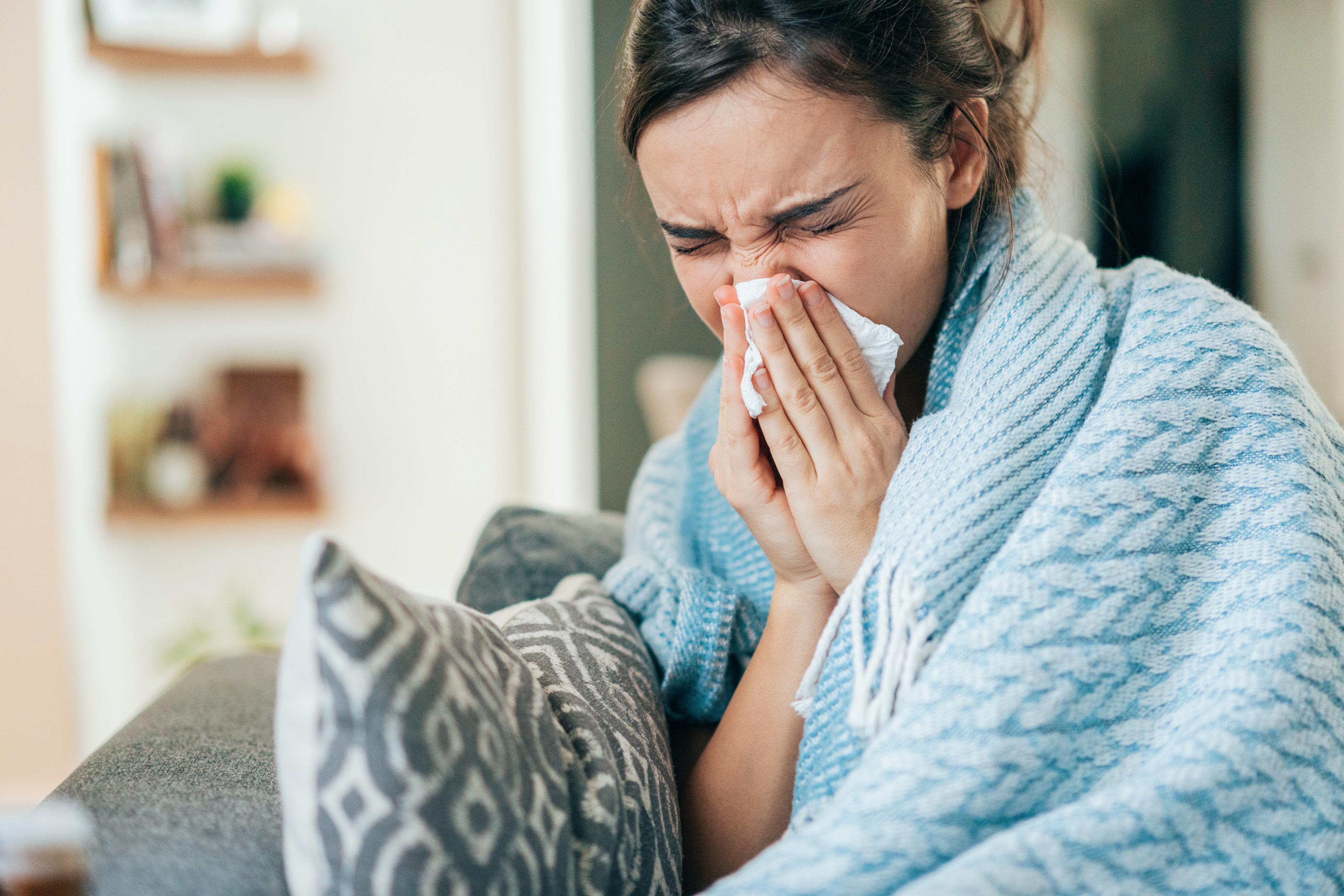Why are My Sinus Issues Worse in the Winter?

Lindsay Knake
| 3 min read
Lindsay Knake is a brand journalist for Blue Cross Blue Shield of Michigan.

The cold weather has been here for months, the air is dry and your sinuses are congested. About 35 million Americans will deal with sinusitis every year, according to WebMD. While we can have sinus problems at any time, winter can be a particularly difficult time for sinus pressure and headaches.
Let’s look at the causes of sinusitis and how the winter can exacerbate them.
What is sinusitis?
Sinusitis is the swelling of tissue lining your nasal passages. The sinuses are eight air-filled cavities behind your nose and eyes that make mucus to clean the air you breathe. But when the sinuses swell and prevent mucus in your sinus cavities from draining properly, this can cause:
- Headaches
- Pressure or pain in the face or teeth.
- Congestion and post-nasal drip
- Cough
- Fatigue
- Fever
Acute sinusitis typically lasts less than four weeks and goes away on its own, while chronic sinusitis lasts at least 12 weeks. If you have sinusitis for more than 10 days, talk to your primary care physician. Bacterial sinusitis may require a round of antibiotics.
Causes of sinusitis
Cold, dry air
Dry air from the furnace or a fireplace can cause mucus membranes in the nose to dry, which leads to thicker mucus and more congestion.
Weather changes
Changing temperatures and storms are another cause of sinus issues. Fluctuations in atmospheric pressure can cause sinus discomfort and headaches.
Indoor allergies
Allergies contribute to sinus pain and discomfort. Homes are closed up in the winter, leading to more dust and dander that can create congestion. Bedding, blankets, carpet and rugs can also become homes for dust mites that lead to sinusitis.
Viruses and infections
Flu, COVID and colds can increase sinus congestion, leading to lingering sinus issues. The common cold is the top cause of sinusitis, according to the Cleveland Clinic. Viral, bacterial or fungal infections can prevent the sinuses from draining and create symptoms.
How to prevent sinusitis in the winter
While there is no cure for sinusitis, there are many different medications and home remedies to reduce symptoms and find relief:
- Take decongestants, over-the-counter allergy medications or prescription allergy medications.
- Use steam in a hot shower or breathing over a hot bowl of water to loosen mucus.
- Nasal irrigation with a Neti pot or saline solution to reduce congestion.
- Massage pressure points near your nose and on your forehead.
- Elevate your head with an extra pillow when you sleep.
To prevent sinusitis, take measures around your home and eat a healthy diet to prevent risk of sinusitis:
- Use a high-efficiency particulate air (HEPA) filter to clean the air in your home.
- Regularly vacuum and dust.
- Regularly clean blankets, rugs and bedding.
- Use a humidifier to add moisture to the air.
- Wash your hands frequently to prevent illness.
- Avoid alcohol, which increases nasal congestion.
- Stop smoking or avoid second-hand smoke, which can irritate the sinuses.
- Drink plenty of water or herbal tea.
- Eat a healthy diet with fresh fruits and vegetables to maintain a healthy immune system.
- Get regular exercise for your overall health.
For ongoing sinus issues, talk to your primary care physician.
Image: Getty Images
Related:





